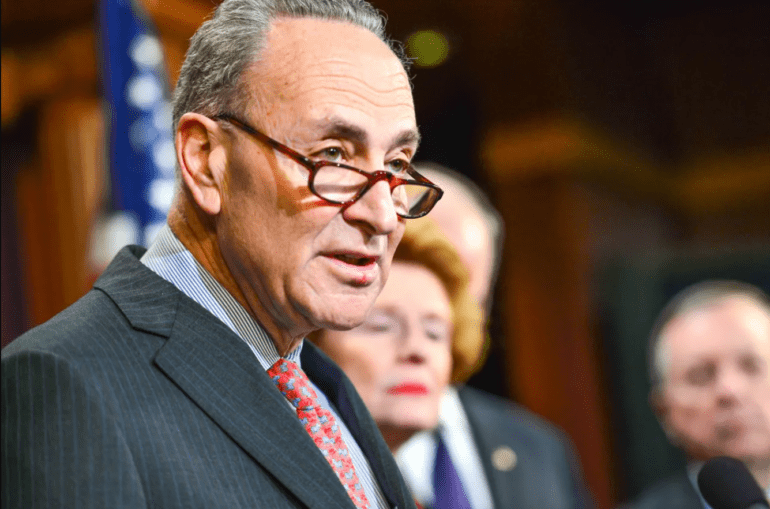TL;DR:
- Senate Majority Leader Chuck Schumer to host a closed-door AI insight forum on November 1.
- The forum brings together leaders from labor unions, financial institutions, and think tanks.
- Focus on the impact of AI on the American workforce and equitable benefits.
- Attendees include CEOs of JPMorgan and Visa, labor union executives, and tech leaders.
- Schumer’s proactive stance aligns with evolving AI governance and competition with the EU and China.
- Schumer introduced a comprehensive legislative plan for AI regulation.
Main AI News:
Senate Majority Leader Chuck Schumer is poised to host his third bipartisan AI insight forum on November 1, an exclusive gathering set to redefine AI policy in the workplace. This high-stakes summit will bring together luminaries from labor unions, leading financial institutions, and influential think tanks, all converging on Capitol Hill to deliberate the intersection of artificial intelligence and the workforce.
The primary focus of this closed-door event is to chart a course for AI in the American workforce, taking into account the full spectrum of economic stakeholders. Schumer’s objective is to explore the transformative potential of AI, addressing both its proponents and its critics, as the federal government seeks to establish a regulatory framework that ensures equitable AI benefits for all.
“This Forum is focused on the intersection of AI and the workforce. It aims to explore how AI will alter the way that Americans work, including the risks and opportunities,” Schumer’s staff said in an invite to the forum, exclusively viewed by FedScoop.
Industries spanning medicine, manufacturing, transportation, energy, entertainment, and hospitality are poised to experience the profound impacts of AI’s widespread adoption. The core mission is to scrutinize the role of the federal government in bolstering the domestic AI workforce and ensuring that the dividends of AI are accessible to every American.
The prestigious roster of attendees at this pivotal AI forum includes luminaries such as JPMorgan CEO Jamie Dimon, Visa CEO Al Kelly, National Nurses Union Executive Director Bonnie Castillo, UNITE HERE President D. Taylor, SAG-AFTRA Executive Director Duncan Crabtree-Ireland, IBEW President Kenneth Cooper, CWA President Claude Cummings, Accenture CEO Julie Sweet, Microsoft’s Senior Director of Education Policy Allyson Knox, and Center for American Progress President Patrick Gaspard.
Schumer’s initial AI forum in September laid the groundwork for identifying and addressing critical AI challenges, while the second forum, held earlier this week, concentrated on fostering innovation through increased federal research and development funding, addressing tech immigration concerns, and finding common ground on AI safeguards.
This event marks just one of nine planned “insight forums” by Senator Schumer, each addressing distinct aspects of AI policy, including national security, privacy, high-risk applications, and bias, among others.
Schumer’s proactive stance on AI regulation aligns with the evolving landscape of AI governance in the United States. As federal officials and Congress grapple with various approaches to AI regulation, the pressure mounts to catch up with the European Union, which recently passed the draft legislation known as the AI Act. Simultaneously, there’s a concerted effort to propel US companies to the forefront of global AI technology development, especially as China continues its significant investments in the AI domain.
In June, Schumer introduced a comprehensive legislative plan, the “Safe Innovation Framework for AI Policy,” aimed at regulating and advancing AI development in the United States. This strategic blueprint outlines a path to safeguard, expand, and harness the full potential of AI, offering a clear vision for Congress as it navigates the complex AI policy landscape.
Conclusion:
Schumer’s exclusive AI workforce summit signifies a pivotal moment in shaping AI policy in the United States. With a diverse set of stakeholders coming together to explore the impact of AI on the workforce and regulatory possibilities, this event reflects a proactive approach to governing AI. The market can expect increased scrutiny and potential regulatory measures as the US aims to keep pace with global developments in AI governance and technology advancement.

